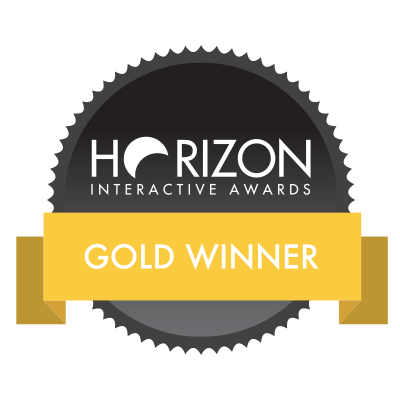
AI pioneer Innoplexus and phytopharmaceutical company DrD are partnering toRead More

AI pioneer Innoplexus and phytopharmaceutical company DrD are partnering toRead More
Jun 24
Apr 24

Innoplexus wins Horizon Interactive Gold Award for Curia App
Read MoreThe technologies behind the next wave in healthcare innovation.
Information is the new currency of innovation. With data flowing from countless new sources every day, the opportunities to dig in and learn more about the world around us have never been greater. Sometimes the amount of data at our disposal can be overwhelming, however, making it difficult to sift through the noise and make sense of the information we collect.
One arena experiencing significant growth in data resources is the healthcare industry. Research projects that various health care data initiatives will increase the global healthcare data analytics segment to $34.27 billion by 2022. That kind of growth demonstrates the level of interest and need there is in the market for improved data solutions in the healthcare industry.
Intelligence Machines for Pharma and LifeSciences
According to McKinsey & Company, Pharmaceutical R&D suffers from declining success rates and a stagnant pipeline. Improved accessibility to big data and analytics could be a key element in speeding things back up. Gaurav Tripathi, CTO of Innoplexus AG, a firm that provides data solutions in the life sciences and healthcare space explains, “Today’s volume, velocity, and veracity of data, render the manual collection and curation of intelligence impossible for small to midsize pharma and biotech companies.” That’s why many are looking to service providers that can automate their data collection and analytics.
One report found that 83% of pharmaceutical companies plan to make analytics solutions a priority in the coming year. Tripathi went on to share that their goal must be to “take raw unstructured data and give it form, making it more useful. Making data and insights available instantly takes the pain out of data collection, curation and analysis, which means companies can make more informed decisions faster.”
Data is Changing Hospitals
Medical facilities, once swamped with data that they couldn’t effectively leverage, are developing ways to make sense of it all to help improve operations. Stefano Bertozzi, Dean at UC Berkeley School of Public Health shares, “Healthcare data is getting bigger all the time, just look at EHRs alone: Medical records becoming electronic, with the ability to access vast amounts of data about patients and the health system, is increasing rapidly.” As that data increases in scope, medical professionals are working hard to consider how it can be gathered and rendered useful.
Bertozzi goes on to say, “The rate of change in terms of how quickly we are digitizing data in the health space is astounding. And when you start to combine that data with things like human resources, supply chain, characteristics of clinics and hospitals, provider training, reimbursement schemes – it just gets bigger.” The bigger this data gets, the more empowered hospitals are to make better decisions surrounding operations and people.
Health Data Democratized
As more and more data solutions for healthcare emerge, there has been a clear democratization of critical healthcare data. Whether it’s advice databases like Ask The Doctor and Healthline, or key drug information shared by pharmaceutical companies, more consumers have access to health information, which is great for things like preventive care.
One of the major drivers behind this shift is a growing number of medical professionals that realize their data is siloed in their offices, and that by sharing it on these platforms they can extend the reach of their findings and improve the lives of others.
It is important to note that while data is improving for the healthcare industry, there is still a great deal of information to sift through. Medical professionals should be cautious about drawing conclusions from unstructured data without the consensus of their peers, or information from more sound technology platforms.
For those healthcare professionals seeking ways to leverage data insights, it is important to evaluate whether or not they are coming from a trusted source to ensure they are reliable and actionable. As data and analytics begin to increase access to information, we can expect that it will be easier for doctors, patients, researchers, and developers alike to share important health information freely.
Read the original story at Inc.com
The original article was published on Inc
Frankfurt, Germany, 3rd June 2024, 9am CET Partex, a leading provider of AI-driven solutions in the pharmaceutical industry, is thrilled to…
Frankfurt, Germany, 23 April 2024 – Partex, a leading provider of AI-driven solutions in the pharmaceutical industry, is thrilled to…
Frankfurt, Germany; 28 March 2024 – Partex Group, a pioneer in AI-driven drug discovery, announces a collaboration with Althea DRF…
During the German Cancer Congress 2024 in Berlin, the companies Innoplexus AG /Amrit AG, companies of Partex N.V., presented the…
Frankfurt, Germany; 14 March 2024 Partex Group, a pioneer in AI-driven drug discovery, today announces a collaboration with global pharmaceutical…
January 02, 2024 – Innoplexus and Amrit AG, members of the Partex NV Group, providers of innovative technology for health…
Exciting News! Anavex Life Sciences and Partex NV Announce Strategic Partnership to Enhance Patient Experience. Anavex Life Sciences Corp. and Partex NV N.V. Group are pleased to announce…
The treatment and support of patients with advanced tumor diseases is a complex task involving numerous disciplines. For the interdisciplinary…
Artificial Intelligence (AI) pioneer Innoplexus and London based Parametric Insurance start-up, Innovatrix Capital, collaborating upon using AI & Machine Learning…
Innoplexus and Inflection Biosciences enter strategic collaboration based on Artificial Intelligence to expedite PIM kinase inhibitor development ESCHBORN, Germany, May 30,…